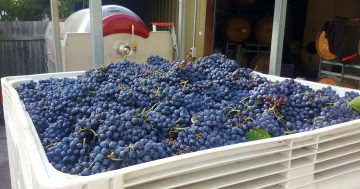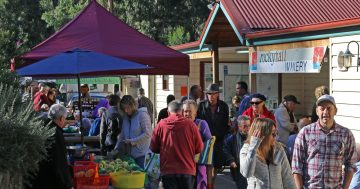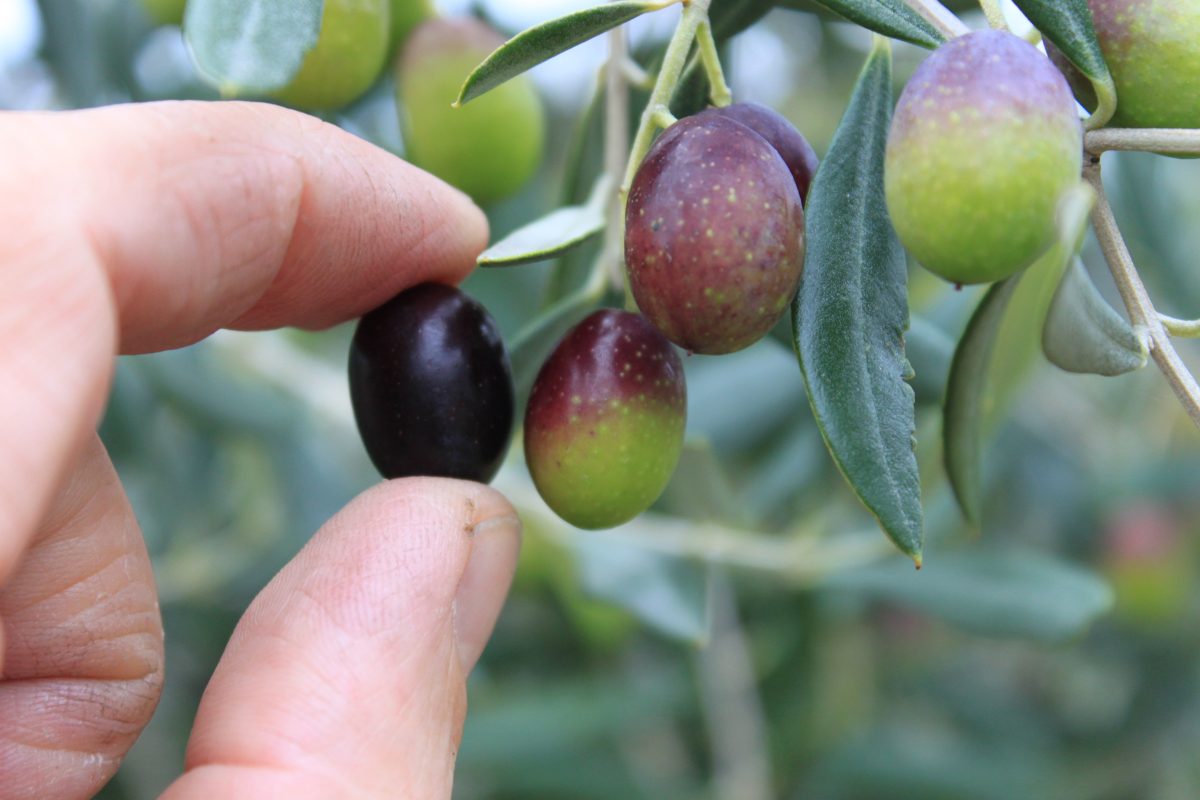
The Yass Valley olive harvest has wrapped up for the year. Photo: Homeleigh Grove.
It may be a long way from Jaen province in the south of Spain, or Italy’s famous Tuscan countryside, but the Yass Valley is proving it has what it takes to produce world-class olives.
The area around Canberra is already known for its superb cool-climate wines, and Peter O’Clery from Homeleigh Grove believes olives will be the next big success story for the region.
Peter and his wife Caroline had just finished hand-picking their final crop for the season, before the big chill hit their 20-acre (eight-hectare) olive grove on their mixed-farming property on the New South Wales/ACT border last week.
He said apart from the heavy frosts, the Yass Valley featured similar climatic conditions to Tuscany, creating “perfect growing conditions” for olives.
Peter grows 16 varieties of olives, including the Italian Correggiola and Frantoio, which he says do very well, despite the irregular rainfall. The farm produces table olives, olive oil and a range of by-products such as soap and hand cream.
The O’Clerys usually start harvesting their table olives by hand in late April.
“Our main machine harvest for oil starts in the second week of May, then we keep hand-picking our table olives for as long as we can – until the first damaging frost hits,” Peter said.
When they purchased their property in the 1980s, Peter and Caroline thought about jumping on the wine bandwagon, but, 40 years later, Peter says he made the right choice.
“For the first couple of years, it really was a question of what are you going to call ‘that’ olive?” he laughed.
“After a few more years, we were excited to produce a kilo of olives, and in 2021 we had our biggest harvest, producing 50 tonnes.
“We’re still 20 to 40 years behind the wine industry in terms of infrastructure and groves in the region, but I believe olives will come into their own. We’ve got an awful lot of little groves and a few big groves in the Yass Valley.”
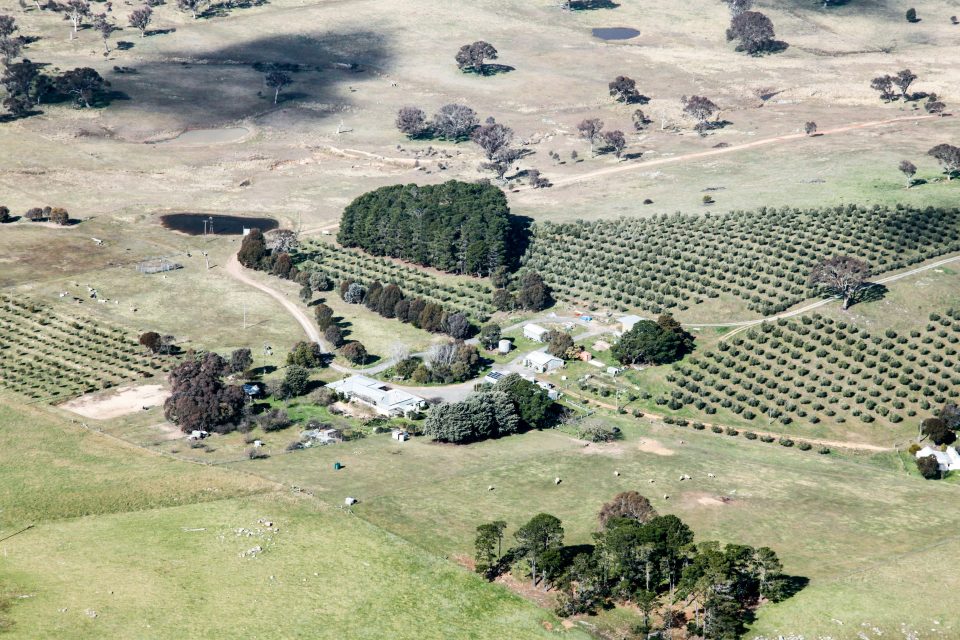
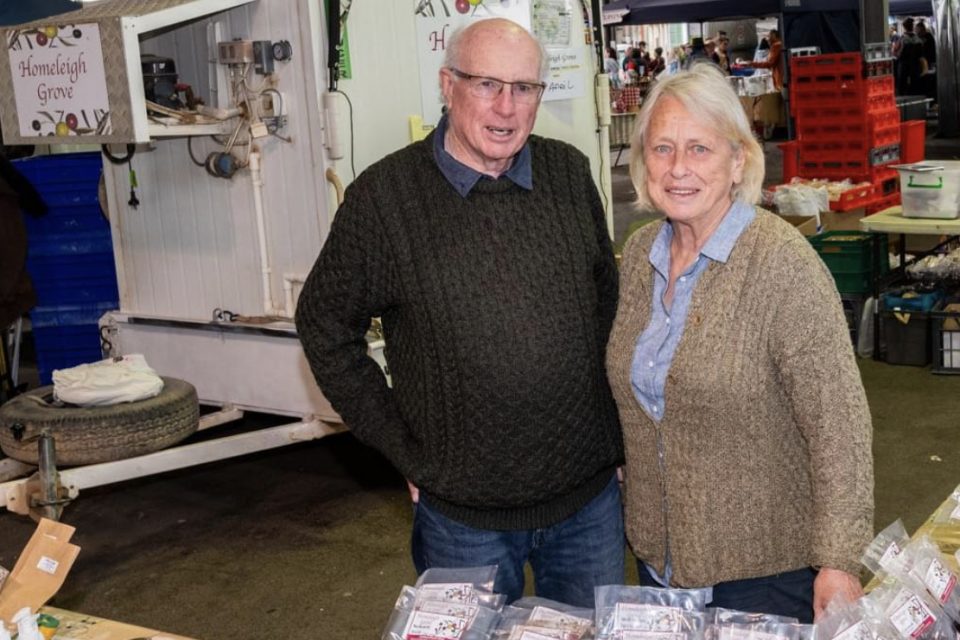
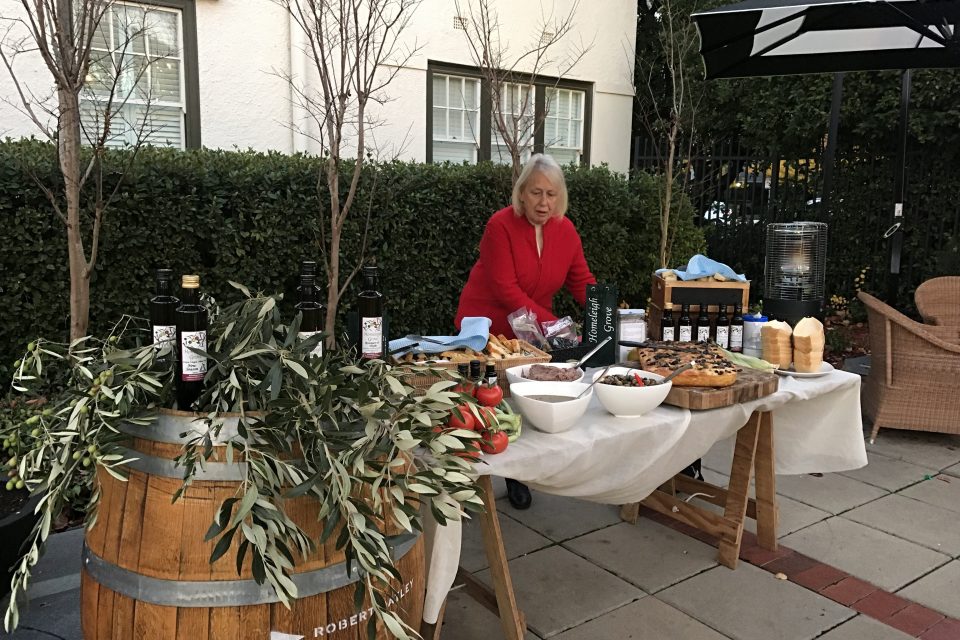


It took about 14 years for the Homeleigh Grove olive trees to produce fruit and Peter said it was a case of “trial and error” before he identified the varieties from Italy, Greece and Spain that were ideally suited to the local climate and landscape.
“When we first started to look at what we might do with the land, we thought about grapes, then discovered the CSIRO had identified the area was suitable for olive trees,” Peter explained.
“Basically, anywhere you can grow wine grapes, you can also grow olives.
“Something like 95 per cent of olive products being consumed in Australia at that time were imported, so we hoped to contribute to a change and eventually see more local products on supermarket shelves.”
Peter said Australian-grown olive oil had “great character to it” and the flavours could change from year to year, depending on the quality of fruit, the length of time between harvesting and milling, and the temperature reached during processing.
“The majority of supermarket oils – to use a technical term – are ‘dumbed-down’ imported oils and a lot are too old. Best to buy fresh Australian oils or, even better, buy local!” he said.
“We hand-pick our table olives to ensure they are not damaged, and for our bulk harvest – for oil – we aim for a short turn-around between picking and milling to retain as much flavour as we can.
“However, you never know what you’re going to get. This year our first batch of oil was really strong and the next two were a little bit milder. The earlier the harvest and the greener the fruit, the more ‘whoomp’ the oil’s got.”
The table olives are hand-picked and de-bittered using a traditional salt-brine method. All the olives have pits because, as Peter explained, reliable pitting machines were “serious industrial gear” and unaffordable for boutique farmers.
The Homeleigh Grove label is always a fruity mild-to-medium oil with a tinge of pepperiness.
Peter says this year’s harvest is looking good, despite the region being hit hard by hail in early 2022.
“Last year’s big hail storm basically either pockmarked the fruit or they hit the ground. They weren’t suitable for table olives. The trees are still recovering from that storm, with many damaged branches, but we’ve had good fruit and we’re hoping for a good year,” he added.
Yass Valley olive farmers sell their wares at farmers’ markets in and around Canberra. Many also sell oil, table olives, soaps and creams from specialty food stores and the Yass Valley Visitor Information Centre.
Homeleigh Grove has produced medal-winning oils and table olives and Peter and Caroline are signatories to the Code of Practice for the Australian Olive Industry, which entitles them to use the AEV logo for extra-virgin oils.
Original Article published by Katrina Condie on Riotact.







